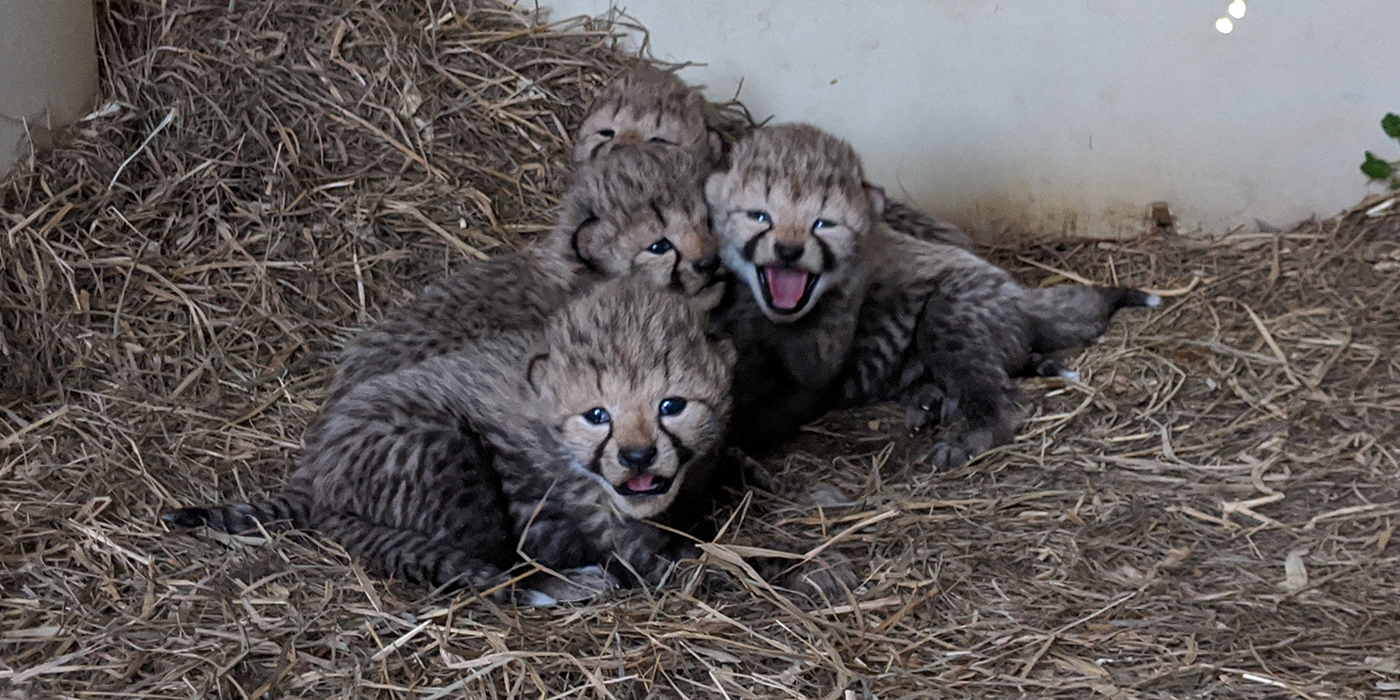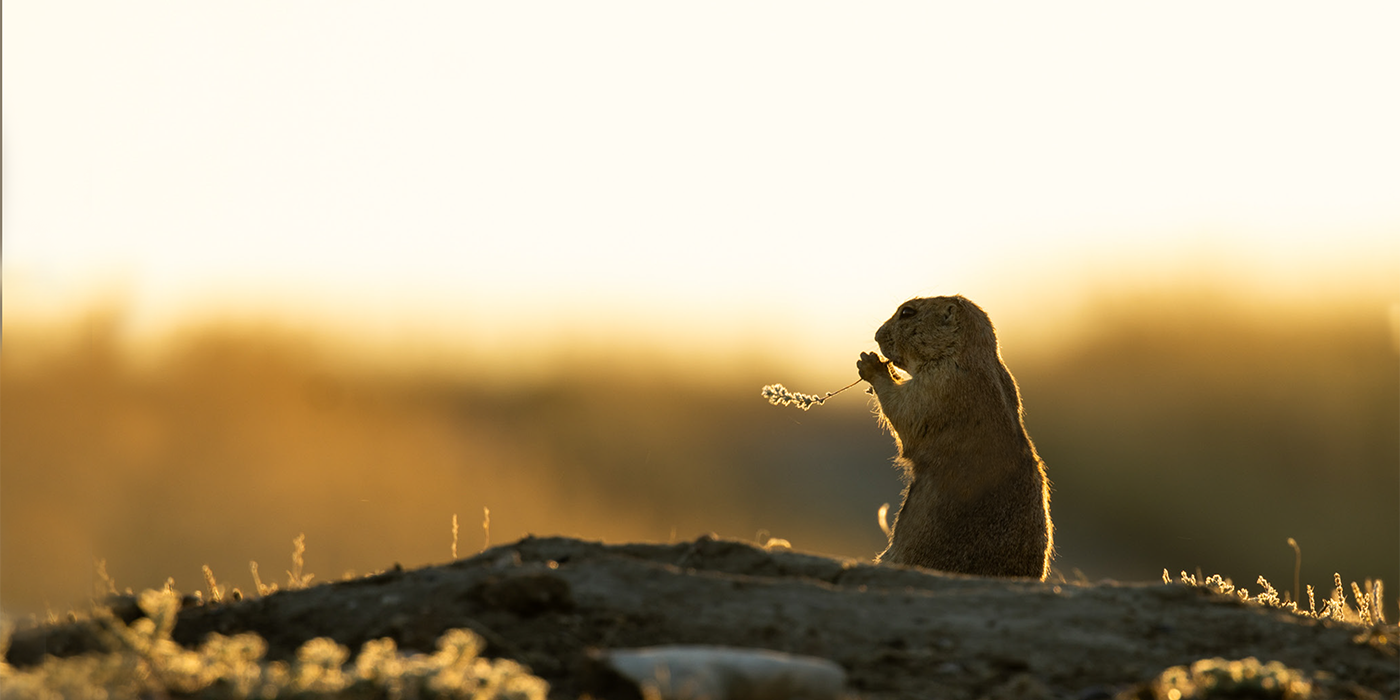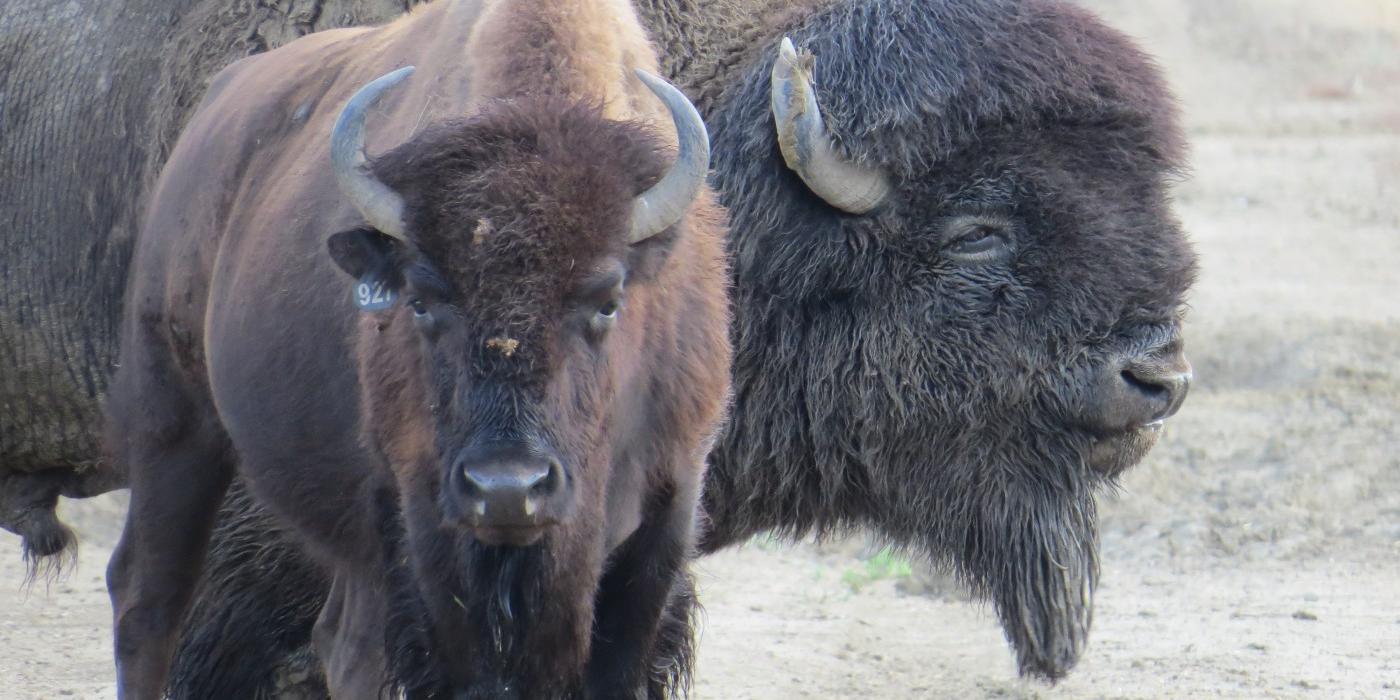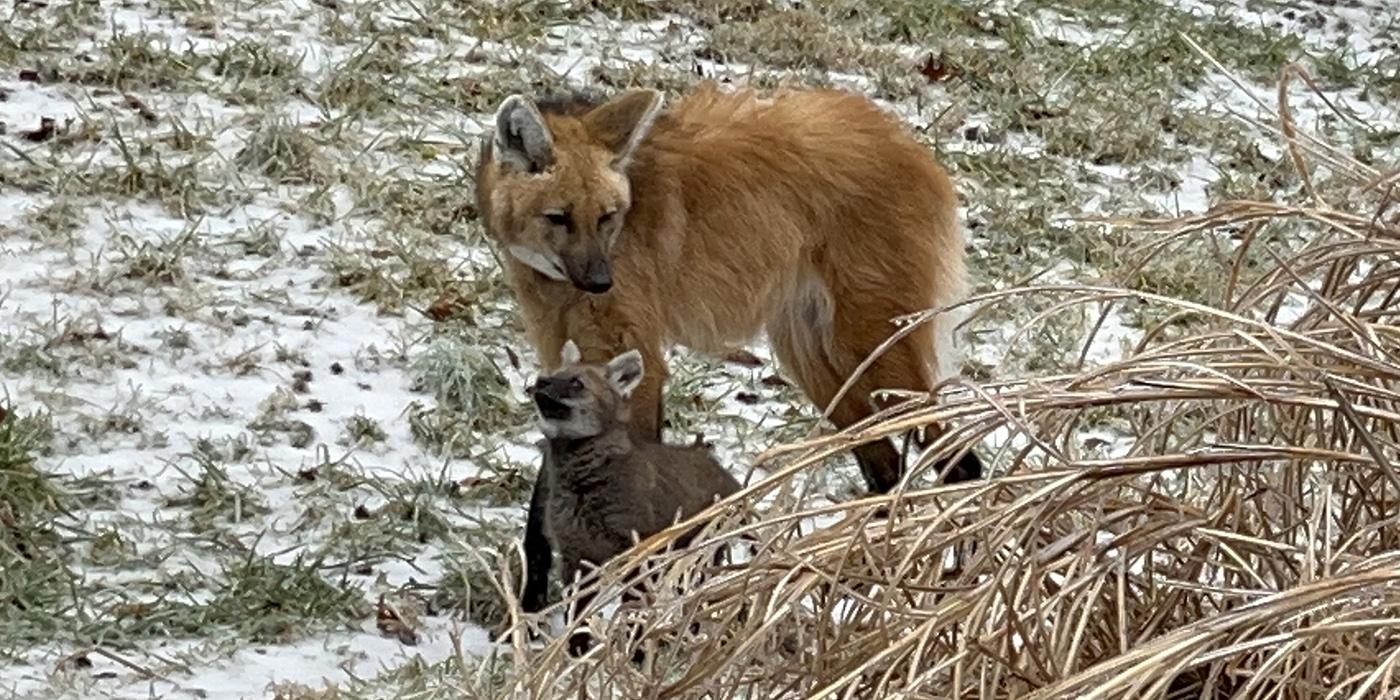Cheetah #Cubdate 3: April 20
It was a busy week for Echo’s cheetah cubs! Not only did Echo move them to a new den, but keepers were able to weigh the cubs and determine their sex. Find out more in this Q&A with cheetah biologist Adrienne Crosier.
Why did Echo move her cubs to a new den?
Cheetah moms move their cubs in the wild and in human care, especially while the cubs are still small. It is normal behavior. In the wild, it is predator avoidance. We know that Echo doesn't see us as predators, because we have handled the cubs several times and she has only moved them once.
As a rule, we always give cheetah moms more than one den so that they have good options for moving their cubs. Some females move them more often than others. This kind of purposeful moving is fine — from one den to another. It is only when a mom starts carrying cubs with no destination in mind that we become concerned.
Why isn’t there a webcam in the new den?
Echo happened to choose the one den with older technology in it. While it has a camera, we can only watch it on-site. It can’t be streamed to the internet. Don’t worry; Echo and the cubs are doing great, and keepers are monitoring them without issue.
Will we be able to see the cubs again?
Echo will most likely move her cubs to another den with a webcam that can be livestreamed. We are hopeful that you will get to follow along online again soon.
How (and why) do you weigh cheetah cubs?
If you have read previous Cheetah #Cubdates, you know we have been working slowly to have more and more interaction with the cubs when mom Echo leaves the den. It’s a process that we do in stages. On the first day, we just open the cub door and look at the cubs. On the second day, we will pick them up (gently!). And then, on the third day, we pull them out of the den to put them on a scale and weigh them.
We make sure Echo is comfortable with every step before we move on to the next. We only approach the den when she is out of it, but she can smell when we have been around her den or holding her cubs. So far, Echo doesn’t seem to have any issues with us near the den or holding the cubs.
Weighing the cubs helps us know they are growing and thriving. Without a base weight, we can’t tell if a cub is gaining or losing weight. So, it’s an important part of cub care and management. We have entered the den a total of five times so far, and Echo doesn't seem to mind.
How much did the cubs weigh?
The cubs all weighed between .9 and .96 kilograms, or about 2 pounds — which is great, even a little chubby. But we are not worried about chubbiness at this point. They are likely to be less chubby when they are more mobile. This is also probably about double their birth weight. Most cubs are born weighing around 1 pound.
Are Echo’s cubs male or female?
It’s a girl — and three boys!
Why are there little shaved spots on the cubs’ fur?
We shave a tiny bit of fur on each cub so that we can tell them apart. This ensures that we know which cub weighs what amount and lets us track each cub’s growth.
What other milestones were there last week?
We have noticed Echo leaving the den for longer and more frequent periods of time. And we have also noticed that the cubs don’t clamor all over her when she returns to the den. This a good sign. It means the cubs don’t need to nurse immediately, and it also lets Echo have a break.
The cubs’ eyes are almost all open, which is what we expect by day 10. Open eyes mean more active cubs, and we have really seen them start to scoot around the den.
Oh, and there was a cheetah cub sneeze caught on camera:
When will the cubs leave the den?
At some point soon we expect to see one of the cubs follow Echo out of the den. There is actually a short barrier between the den and the outside, so a cub needs to be able to climb over it to get out. We usually see this around 3 to 4 weeks old.
Is it safe to say the cubs are “out of the woods” now that we know they are healthy and gaining weight?
Not exactly. Echo is a fabulous mom. She is doing an incredible job. But until the cubs start eating meat, usually around 6 weeks old, we are not ready to call it a 100% success.
Related Species:




